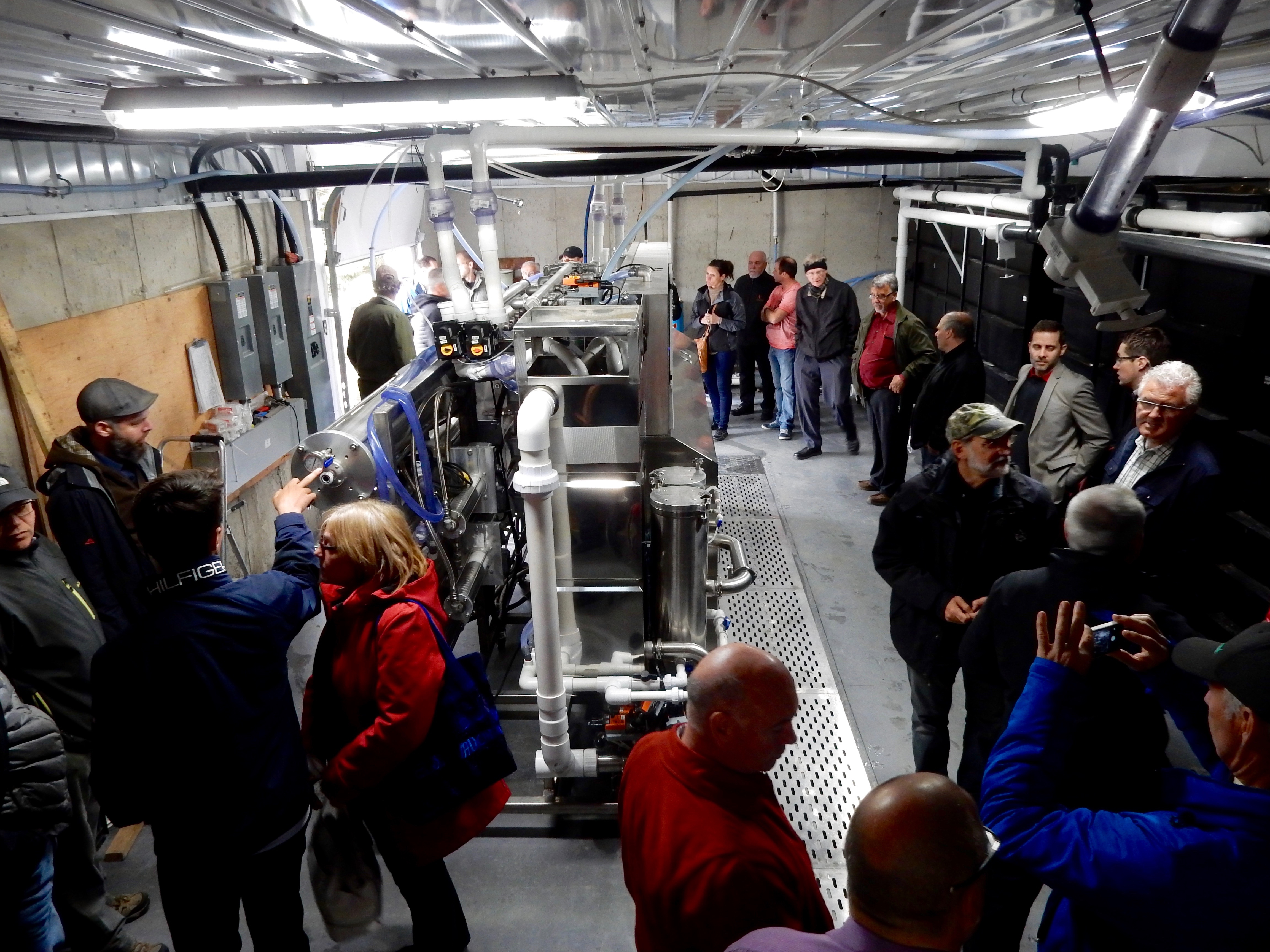
Biomass wave hits Quebec
June 17, 2016
By
Andrew Macklin
June 17, 2016 - Greenhouses, mines, schools, municipalities and even maple syrup entrepreneurs are being seduced by biomass heating systems to reduce their heating cost while making the switch for a renewable resource.

Over 250 biomass related professionals met in Québec for the first Conference on residual forest biomass heating held last week. Organizers of the event were very with the overall attendance, according to Amélie St-Laurent-Samuel, one of the two spokespeople of Vision Biomasse Québec, a group of municipal, environmental, businesses and cooperative organizations promoting biomass use in the province.
Québec’s Minister of Natural Resources (MRN), Pierre Arcand, wasin attendance to help launch the conference. During his remarks, the minister noted that, on its way to “decarbonizing” its economy, Québec’s new energy transition plan states that the province needs to reduce its greenhouse gas emissions by 37.5 per cent, use 25 per cent more renewable energy and use 50 per cent more bioenergy by 2030.
To achieve this goal, Québec will create Transition énergétique Québec. “This is a new organization who will manage a four billion dollar budget to fund energy efficiency and substitution projects submitted for residential, business or public organizations,” explained Arcand.
But can forest biomass compete against other energy sources? From an economic standpoint, biomass is less expensive than any other energy source, notes Jean-Pierre Bourque, industrial advisor for the ministry of Forest, Wildlife and Parks (MFWP). “The cost of biomass is very competitive for heating purposes. For example, electricity is the most expensive at $86/MWh, and biomass is the least expensive at $17.12/MWh (not including processing)”, he said.
If it is the cheapest energy, investing in new equipment, like a boiler, greatly increases biomass conversion project’s costs. This is why funding those projects is key for current industry stakeholders. And government subsidies often make the difference, comments Luce Asselin, MRN deputy minister. “These budgets come from the Green Fund and we must convince many colleagues about the importance of this sector to make additional budgets available.”
While each of the province’s funding programs have run out of money, Fondaction, a workers’ union fund, Investissement Québec and the Fédération des coopératives forestières du Québec created the Biomass Energy Fund, with $20.2 million in funding, to offer professional advice and money for biomass conversion projects.
Furthermore, Fondaction will invest $50 million for greenhouse gas reduction projects over the next two years according to Claire Bisson, assistant chief investor for Fondaction. To fund biomass heating projects, Fondaction first looks for stable biomass supply, proven technology and available expertise.
To develop the biomass sector, better and more specialized training must be provided to the emerging workforce, too often inexistent, according to many specialists.
To reach it 37.5 per cent GHG reduction target by 2030, Québec will need to displace oil and propane, but also natural gas, thinks Normand Mousseau, professor and holder Canada Research Chair in Computational Physics of Complex Materials at l’Université de Montreal. This is why the biomass sector has a unique opportunity to become an economic alternative in commercial and institutional heating projects. The key: the development new technologies.
“New models integrating heating and air conditioning need to be developed need to be developed to offer integrated solutions to the clients. To do this, you may need to think about bioenergy sources,” he proposed.
Even if there is still a lot of work to be done to fully develop the biomass sector in Quebec, some businesses are ready to take some risks to save some money and to develop new markets. This is what Fromagerie Boivin, a cheese-making company in Saguenay, did in 2008, when they invested in a 800 hp boiler. Their goal: evaporate lactoserum, a milk byproduct, into powder to reach animal food markets.
Norforce Énergie also developed a new business model to implement biomass-heating projects in mines. Since 2013, their turnkey solutions have become a success at the Casa Berardi mine, 100 km north of Lasarre, in Abitibi. The company hopes to implement this model in other mines over the coming years.
Print this page